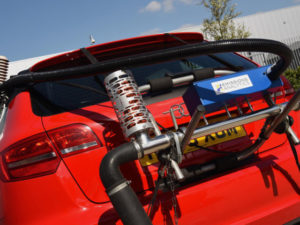Fleets warned about flawed anti-diesel policies
Fleets and policymakers are being told not to take a blanket anti-diesel approach, as leasing statistics show a widespread move towards potentially more polluting, higher CO2, petrol engines rather than electric or hybrid models.

On-road testing is showing a blanket approach to fuel choice isn’t the right move.
The BVRLA’s latest Quarterly Leasing Survey shows a steep decline in the diesel share of its members’ new fleet car registrations; down from 67.0% in Q1 2017, to 54.9% in Q1 2018. Despite an increase in the share of electric and hybrid registrations in the same period, from 5.5% of new cars to 9.6%, the statistics show most have swapped to petrol engines instead, up from 27.4% in Q1 2017, to 35.6% a year later.
But independent, on-road test data from Emissions Analytics suggests anti-diesel policies might not be delivering environmental benefits. Its latest results show an eight-fold reduction in NOx emissions for the cleanest diesels since 2013, with many now matching or beating petrol counterparts.
All of which makes purchasing and policy decisions more complicated. Emissions Analytics said the gap between the best and worst diesel performers is widening, with the latter now emitting 32 times more NOx than the former. Real Driving Emissions (RDE) testing, which sets on-road NOx limits and should close the gap, doesn’t become mandatory until next year, and petrol isn’t always a better choice. The latest diesels emit 71% less particulate matter than petrols (excluding models with a petrol particulate filter), and 18% less CO2 as well, it added.
“The elongated transition to RDE, and growing spread from the best to the worst, are creating a growing policy and consumer choice problem in the meantime,” the organisation said. “A vehicle in the highest-emitting decile today will likely be a significant contributor to urban NO2 pollution. Yet, the cleanest diesels are getting close to the average NOx emissions from new gasoline vehicles, which is 36mg/km. Without the contemporary data to show this, policy makers would be forgiven for simply banning all diesels from urban locations.
“Consumers are at the forefront of the changing complexion of the car fleet, as they are making purchasing decisions now, and need detailed, specific information of competitor models. Policy makers need to be careful not to chase the past, but rather understand the models – with their emissions and fuel economy characteristics – that are already coming through, whether they be diesel, gasoline, hybrid or electric.”

















